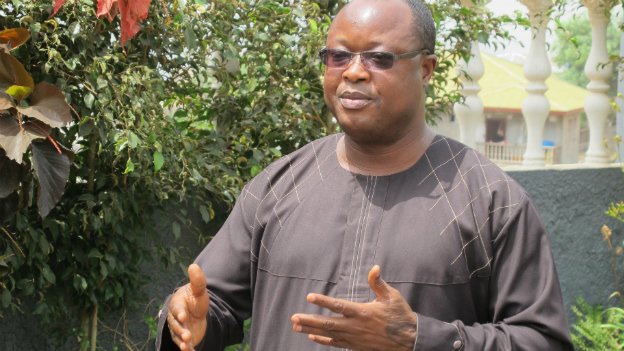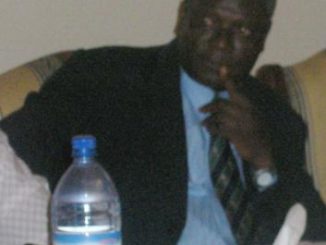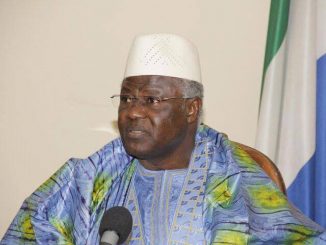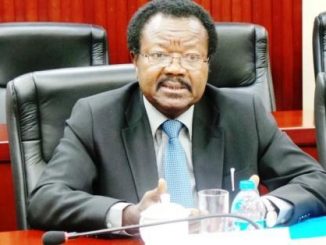
By Mahmud Tim Kargbo.
UNIT 1
The Jurisdiction of the ECOWAS Community Court of Justice and the decisions of the Highest National Courts (Supreme Court) of Member States, especially Relating to Interpretation and Enforcement of Provisions of the National Constitutions of ECOWAS member States.
ISSUE 1
Is the Revised Treaty of the Economic Community of West African States (ECOWAS) inferior or superior to the national Constitutions of the English speaking countries of ECOWAS?YES:
It is unlikely that the Revised Treaty of ECOWAS is superior to the national Constitutions of English speaking countries of ECOWAS since their Constitutions declare their supremacy.
Constitutions of English speaking West African States declare the supremacy of their national Constitutions as provided for in their national Constitutions. In Ghana section 1 (2) of the Constitution of Ghana provides that the Constitution shall be the supreme law of Ghana and any other law found to be inconsistent with any provision of this Constitution should, to the extent of the inconsistency be void. In Nigeria, the supremacy of its national Constitution is provided for in Section 1(1) of the 1991 Nigeria Constitution as follows: This Constitution shall have the force of law throughout Nigeria and, subject to the provisions of section 4 of this Constitution, if any other law (including the Constitution of a region) is inconsistent with this Constitution, this Constitution shall prevail and the other law shall, to the extent of inconsistency be void).
In Sierra Leone, a similar provision providing for the supremacy of its Constitution is contained in the 1991 Constitution.
The Nigerian Supreme Court in Abacha Vs Fawehinmi (2000 no.6 NWLR (Pt660) 228) Nigeria examined the status of the African Charter on Human and People’s Right which was domesticated in Nigeria by legislation as contained in the African Charter on Human and People’s Right (Ratification and Enforcement) Act cap A9 Laws of the Federal Republic of Nigeria 2004) in which it held that the Nigerian Constitution is superior to the Charter.
It is the view of academic and legal practitioners that the Revised Treaty of ECOWAS is not directly applicable in member States but depends on its applicability on the manner in which it is incorporated in to national legislation of States. In this regard Article 5(2) of the Revised Treaty provides that ‘ Each Member State shall in accordance with its constitutional procedures, take all necessary measures to ensure the enactment and dissemination of such legislative and statutory texts as may be necessary for the implementation of the provisions of this Treaty’.The English speaking countries like Nigeria, Ghana, Sierra Leone, Gambia and Liberia are generally regarded as dualist, meaning that international law (The Revised Treaty for instance) does not have force of law within their territory unless it has been promulgated as a national legislation. Without such a national act the Treaty will not have the force of law in their countries. I am not aware that any of the English speaking countries have domesticated the Revised Treaty. Accordingly, the Revised Treaty is not applicable within these countries and less likely to have direct effect in the national courts.
Assuming the Revised Treaty is domesticated, it is also important to determine the status of the Treaty in order to ascertain whether it is superior or inferior to the Constitutions of these English speaking countries since their Constitutions declare their supremacy.
The domestication of international law is provided for in section 12 of the 1999 Constitution of the Federal Republic of Nigeria, and section 72(1) of the 1992 Constitution of Ghana. Article 40 (4) ii of the 1991 Sierra Leone Constitution provides as follows: (4) ‘Not withstanding any provisions of this Constitutions or any other law to the contrary, the President shall, without prejudice to any such law as may for the time being be adopted by Parliament, be responsible, in addition to the functions conferred upon him in the Constitution for-
(a) all Constitutional matters concerning legislation
(b) relations with foreign States;
(c) the reception of envoys accredited to Sierra Leone and the appointment of principal representative of Sierra Leone abroad;
(d) the execution of Treaties, Agreements or Conventions in the name of Sierra Leone;
(e) the exercise of Prerogative of Mercy;
(f) the grant of honours and awards;
(g) the declaration of war; and
(h) such other matters as may be referred to the President by Parliament…;
provided that any Treaty, Agreement or Convention executed by or under the authority of the President which relates to any matter within the legislative competence of Parliament, or which in any way alters the law of Sierra Leone or imposes any charge or authorises any expenditure out of the Consolidated Fund or any other Fund of Sierra Leone, and any declaration of war made by the President shall be subject to ratification by Parliament-
I. by an enactment of Parliament;
II. by a resolution supported by the votes of not less than one-half of the members of Parliament.
This in effect means the above provisions/articles of the 1991 Sierra Leone Constitution clearly explain the Constitutional procedures to take in domesticating the Articles of the Revised Treaty of ECOWAS which has not been done. This in effect means that the Revised Treaty is not applicable in Sierra Leone as in the other English speaking countries of ECOWAS and less likely to have direct effect in the national Courts of our Sierra Leone.
Assuming without conceding that a decision is handed down by the Supreme Court of Sierra Leone whether against or in favour of parties concerned and any of the parties proceeds to the ECOWAS Court to challenge the decision of the Sierra Leone Supreme Court what is the legal effect of the party’s action?
Arguably, there are divergent views expressed by academics and legal practitioners emanating from their interpretation of the Revised Treaty and judicial precedents (case law in the English speaking countries of ECOWAS).
It further argues that since the five English speaking countries of ECOWAS including Sierra Leone have not followed due process as provided for in their national Constitutions to implement the provisions of the Treaty as contained in Article 5(2) of the Revised Treaty the Revised Treaty is therefore not applicable and any decision may not have any direct effect or capable of enforcement in Sierra Leone.
Assuming the Revised Treaty is domesticated the 1991 Constitution of Sierra Leone is superior to the Revised Treaty as it declares the supremacy of the Constitution.
The Sierra Leone Constitution provides in Part ii, in sections 121,122,123,124,125,126 and127 that the Supreme Court is the highest Court of Sierra Leone in all matters including exclusive jurisdiction relating to interpretation and enforcement of provisions of the Constitution.
NO:
For French speaking West African countries, there is a difference in the manner in which international law is received; as soon as international law is made because these countries are monist in orientation, it becomes part of their national laws.
Two examples- Senegal and Benin Republic suffice. Article 147 of the Constitution of Benin provides that Treaties or Agreements lawfully ratified shall have upon their publication, an authority superior to that of national laws, without prejudice for each Agreement or Treaty in its application by the other party.
In the same light Article 98 of the Senegalese Constitution 2001 provides that Treaties or Agreements duly ratified shall, upon their publication have an authority superior to that of the national laws.
OBSERVATIONS:
This paper takes the view that the judgement of the ECOWAS Court of Community Justice provided for in article 15 of the Revised Treaty establishes the Community Court of Justice. The ECOWAS court as the judicial organ of the community has a significant part in the enforcement of ECOWAS law in national courts through the enforcement of its judgement in these courts. In particular, article 15(4) states that the judgement of the court shall be binding on the Member States, the Institutions of the Community and on individuals and corporate bodies. It appears that Member States will include the judicial bodies in their States. The nature of judicial power in modern constitutions is essentially territorial with each Constitution creating a hierarchy of courts with a final appellate court beyond which there is no appeal. To limit the authority of the highest national court by Treaty will entail the surrender of the judicial sovereignty in clear words. Where the
Revised Treaty is directly applicable in a State as in the French speaking countries, it is clear that the ECOWAS court is superior to the appellate court of these countries and its judgement is of precedential value. Where as in the English speaking countries the Revised Treaty is not directly applicable, it is not very certain that the decisions of the ECOWAS is applicable in that country and if applicable is superior to the judgement of the highest national courts.
This brings to focus the recent view expressed by Mr. Charles Francis Margai in one of the widely read news paper “New Vision” dated 1st September 2015 captioned: ‘Margai Reveals Samsumana’s Secrete’ when his client informed him about the invitation of two Nigerian lawyers to Sierra Leone to proceed to the ECOWAS, if his client case at the Supreme Court is not decided in his favour.



